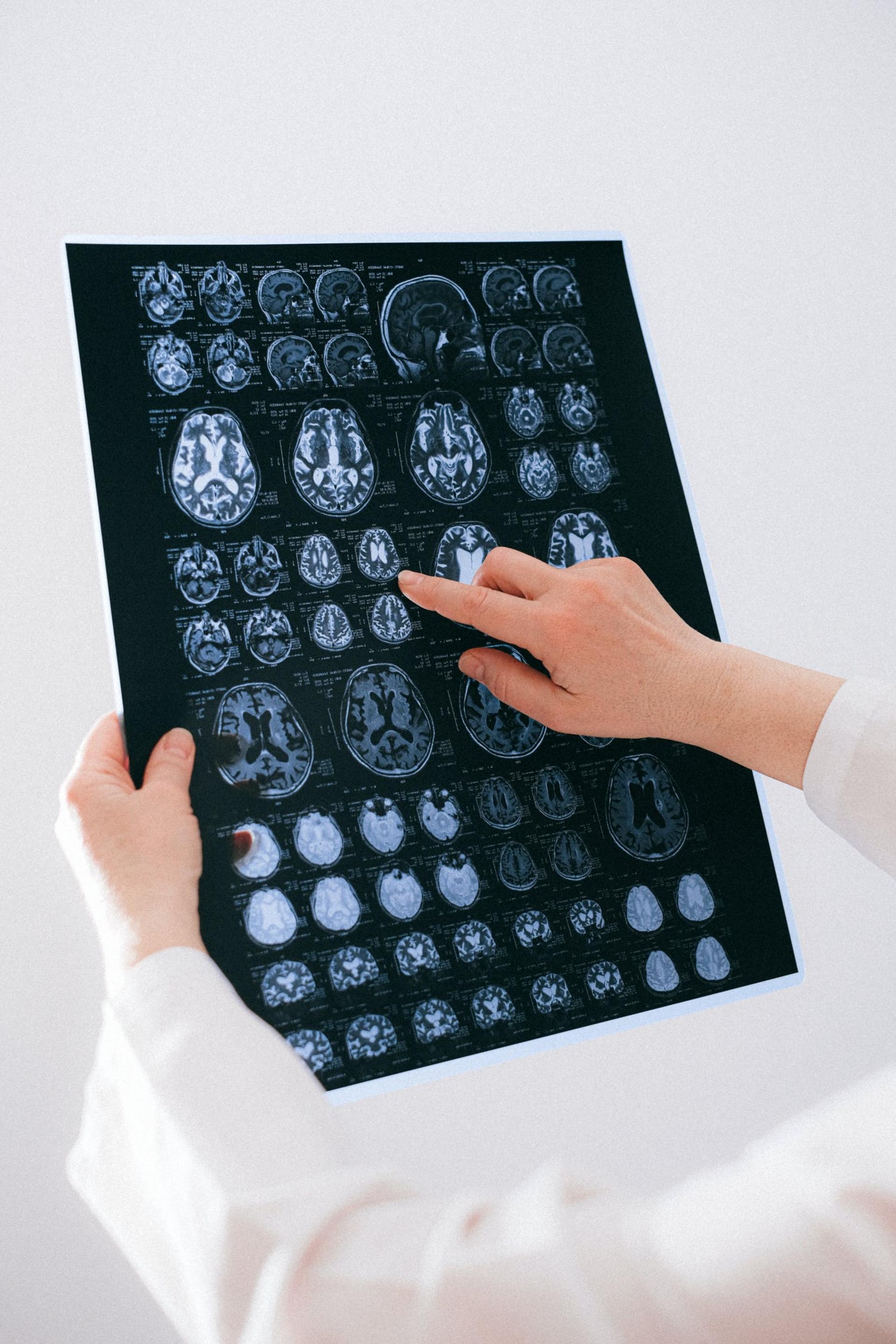Memory Care
8 Things You Didn’t Know About Dementia
Memory Care
8 Things You Didn’t Know About Dementia
Dementia: An Introduction
With aging comes a multitude of health concerns, developments, and conditions. Over three million seniors are diagnosed with dementia each year. dementia affects a person's overall health, quality of life, the lives of their family members, care services, and living choices. There are many unknown facts and misconceptions about dementia; this article addresses those and provides a foundational understanding of dementia and options for living with it.
Understanding Dementia
Before we get into the 8 things you didn't know about dementia, let's define what dementia is. According to the Alzheimers Association, Dementia is a general term for loss of memory, language, problem-solving, and other thinking abilities that are severe enough to interfere with daily life. Alzheimer's is the most common cause of dementia.
 Dementia vs Alzheimer's
Dementia vs Alzheimer's
When understanding the difference between dementia and Alzheimers, the medical community has defined it clearly.
According to the Mayo Clinic, these terms are often used interchangeably, but they actually have different meanings. Dementia is not a specific disease. It's an umbrella term that describes a wide range of symptoms. These symptoms affect people's ability to perform everyday activities on their own. Common symptoms of dementia include:
- A decline in memory
- Changes in thinking skills
- Poor judgment and reasoning skills
- Decreased focus and attention
- Changes in language
- Changes in behavior
Alzheimer's disease is the most common type of dementia, but it's not the only one. There are many different types and causes of dementia, including:
- Lewy body dementia
- Frontotemporal dementia
- Vascular dementia
- Limbic-predominant age-related TDP-43 encephalopathy
- Chronic traumatic encephalopathy
- Parkinson's disease dementia
- Creutzfeldt-Jakob disease
- Huntington's disease
- Mixed dementia
While dementia is a general term, Alzheimer's disease is a specific brain disease. It is marked by symptoms of dementia that gradually get worse over time. Alzheimer's first affects the part of the brain associated with learning, so early symptoms often include changes in memory, thinking, and reasoning skills. As the disease progresses, symptoms become more severe and include confusion, changes in behavior, and other challenges.
SOURCE: The Mayo Clinic, mayoclinic.org
The 8 Things You Probably Didn't Know About Dementia
Now that we have a basic understanding of dementia, here are a few things that you should know about dementia that people may not know about or have misconceptions about.
1. Dementia is NOT a normal part of aging.
The myth that dementia develops as you age is still what most people believe, but dementia is not a regular condition that relates to aging. It is a word that is used for several conditions. According to Dementia UK, “Dementia is a syndrome (a group of related symptoms) associated with an ongoing decline of the brain and its abilities. This may affect a person’s memory, understanding, judgment, communication skills, and their ability to carry out everyday activities.”
Dementia can stem from several issues. It can affect people as young as 30 years old, though the majority of cases are diagnosed in people aged 65 and over. There are several risk factors that may increase your chance of developing dementia, including:
- Family history: If a close relative has or had dementia, you’re more likely to develop the condition.
- Medical conditions: Having diabetes, high blood pressure, or heart disease can increase your risk.
- Ethnicity: People of African or Caribbean descent are at a higher risk.
- Lifestyle choices: Smoking, drinking too much alcohol, not exercising, and eating an unhealthy diet can all contribute to the development of dementia.
Dementia can be diagnosed through a series of physician-ordered tests, such as brain scans, blood work, and cognitive and neurological tests.
2. Dementia affects more women and the less fortunate.
Women seem to be living longer than men, which is why a higher percentage of women are being diagnosed with dementia than men. Studies have shown that the less fortunate may also be prone to dementia because of a lack of resources and education about preventing or slowing the process of dementia (CDC).
3. MCI (Mild Cognitive Impairment) is not Dementia.
MCI is part of healthy aging and is not considered dementia. There are no specific tests for MCI, but your doctor can go through your health and medical history to determine what may be contributing to memory or other brain-related issues.
MCI may move to a stage of dementia, but it is not inevitable in most cases. Symptoms that MCI is progressing may be noticeable when there is increased difficulty completing tasks such as staying focused, balancing a checkbook, eating, using the bathroom, or getting dressed. This would be the time to schedule an appointment with a physician to see how you can slow the process (Healthline).
4. Exercise and activities benefit those living with Dementia.
Exercise is a great way to expend energy for those living with dementia. The benefits of exercise include better sleep, a decrease in depression, increased appetite, and reduced episodes of Sundowning and wandering. Numerous books and website links can give you ideas on what activities you can do with and for your loved one.
Physically, exercise will also lead to improved cardiovascular fitness, strength, and endurance. It also lessens the chance of falls as strength and balance are improved. Additionally, physical exercise can prevent other diseases and help your aging loved one to continue to perform ADLs (activities of daily living) by maintaining strong muscles and flexible joints that help maintain independence for longer. While research shows it may improve overall cognition and slow down mental decline, it will not cure the diagnosis. It will, however, generally help to increase positive moods. (Alzheimer's Society).
5. You can have more than one diagnosis of Dementia.
The term “Mixed” dementia is used when a person has two diseases of the brain. The most common are Alzheimer’s and vascular dementia. Alzheimer’s and Lewy Body Disease are also considered to be mixed dementia.
Alzheimer’s is the most common type of dementia, accounting for 60-80% of all cases. Vascular dementia, which is caused by problems with the supply of blood to the brain, is the second most common type of dementia. Lewy Body Disease, which affects the nervous system, is the third most common type of dementia.
6. Some Dementias are temporary and reversible.
Dementia stemming from a UTI (Urinary Tract Infection), chest infections, insomnia, strokes, traumatic brain injury, or side effects from medication are reversible forms of Dementia that a physician can treat.
7. There is no cure for Dementia.
There is no cure for dementia or mixed dementia, but researchers are hopeful and continue to conduct research to find new and improved ways to slow down the progression of the disease and improve the quality of life for both the sufferer and their carer. These include:
- Medication: There are a number of drugs that can help to manage the symptoms of dementia, including cholinesterase inhibitors and memantine.
- Psychotherapy: Talking therapies such as cognitive-behavioral therapy (CBT) can help people with dementia to deal with their condition.
- Support groups: Many support groups are available for people with dementia and their carers. These can provide a much-needed sense of community and allow people to share their experiences.
8. A person with Dementia can benefit from community living.
A person with dementia can lead an active and fulfilling life. However, over time, your loved one may require more assistance. Therefore, memory care in a senior living community should be considered for helping your loved one and your family.
These assisted living communities provide tools for their caregivers to create a positive environment for residents. Staff is trained to understand the process and stages of dementia, and training courses cover a variety of topics. A few listed here are ways to redirect, learning how to understand non-verbal behaviors, how to lead exercise classes, brain games, and a multitude of ideas for socialization.
 Different Living Options for Those with Alzheimer's or Dementia
Different Living Options for Those with Alzheimer's or Dementia
With an Alzheimer's or dementia diagnosis, it often means it is time to create a safe and supportive living environment. There are a few options when it comes to assisted living with Alzheimer's or dementia: home living with care, assisted living communities, and dementia care communities, otherwise known as memory care.
Living Option One: Home Living with Care
For some people with Alzheimer's and dementia living with families, staying at home is the best option for senior care and supervision. Referred to as in-home care, this means one can stay in one's home with care programs provided in the home as opposed to a senior care community or medical setting.
This can be a good solution if the person with Alzheimer's or dementia is still in the early stages of the disease and can live independently with some help and support.
In-home services often include both medical and non-medical help. Caretakers can help with personal daily needs such as bathing, dressing, eating, and exercising. Housekeeping help is another service that supports those living at home, as are companion programs to assist in getting out of the house, visiting friends and family, and other recreational activities.
Before considering remaining in a home setting, be sure to understand what types of services are covered under Medicare, long-term care, and other support benefits you may be receiving to ease costs.
Living Option Two: Assisted Living
Care retirement communities are another option for seniors with dementia. These communities provide a continuum of care, from independent living to assisted living to skilled nursing care. They provide 24-hour supervision, support, activities, and programs designed to help residents stay engaged and active.
The Benefits of Assisted Living for Seniors with Dementia Include:
- Trained staff who can help with activities of daily living
- A safe environment
- Socialization opportunities
- Cheaper than nursing home care
The Drawbacks of Assisted Living for Seniors with Dementia Include:
- May not be covered by Medicare or private insurance
- Limited medical care
- May not be able to provide the level of personal care needed as the disease progresses
Assisted living facilities are a good option for seniors with dementia who need help with activities of daily living and want to socialize with other people. It is important to research assisted living facilities in your area to find one that is a good fit for your loved one.
Living Option Three: Memory Care
Memory care is an assisted living facility, skilled nursing facility, long-term care community, or nursing home that provides 24-hour care in special care units, sometimes referred to as memory care units. These facilities offer specialized care for dementia patients, services tailored to their level of cognition, and support with personal care needs, medical care needs, and nursing care around the clock.
Memory care has staff members, trained caretakers, and medical professionals to meet the level of care required for individuals with Dementia or Alzheimer's. These assisted living communities offer programs, benefits, and health routines that are suited to the interests and abilities of dementia patients.
Affording Assisted Living or Memory Care
The cost of memory care is similar to nursing home care. According to a study, the median monthly cost of nursing home care in the US is over $9,000. However, Medicare can help cover the cost of assisted living and memory care. Though Medicare does not cover the cost of long-term care, it can help cover the cost of skilled nursing care and some home healthcare services.
Starting to save early is also an option for some people who need to pay for long-term care. It's never too early to be prepared to care for a loved one.
Long-term Care Insurance
Long-term care insurance is a type of insurance that can help cover the costs of long-term care. This type of insurance is typically purchased by people who are 55 or older. Long-term care insurance can help cover the costs of nursing home care, home health care, and other long-term memory care assisted living. It can be a good option for people with Dementia because it can help cover the cost of residential care.
If you're considering long-term care insurance, it's important to understand the policy and what it covers. Long-term care insurance policies can vary, so it's important to read the fine print and understand what is covered. Some policies may cover nursing home care, while others may only cover home-specialized care.
Long-term care insurance policies can be expensive, so be sure to shop around and compare rates. When you're comparing rates, note the cost of premiums.
Making the Move: Assisted Living or Memory Care
You might be wondering which route is best to take for your loved one. The decision to move into a long-term care facility such as memory care, a nursing home, or an assisted living community looks different from having your senior at home. Here are some things to keep in mind when making this difficult decision.
The first thing you'll want to consider is the level of care your loved one needs. If they are still relatively independent but beginning to show signs of forgetfulness, assisted living might be a good option. On the other hand, if they require more assistance with activities of daily living such as bathing, dressing, and eating, a nursing home or memory care unit might be more appropriate.
Another important factor to consider is the cost of care. On average, assisted living communities can cost about $5,300 per month, while nursing homes can cost upwards of $7,000 per month. It's important to have a budget in mind and to research the cost of care in your area before making a decision.
If you're considering a nursing home or memory care unit, you'll also want to look into the quality of care these facilities provide. Make sure to tour the facility and speak with staff members before making a decision.
Additionally, retirement communities and senior housing are not equipped with care options, medical care, supervision, daily assistance, or related continuing care. Always be sure to do your research on your options as you search for nursing homes, assisted living communities, and long-term care facilities. Be prepared with the questions to ask and make an informed decision that benefits both the resident and their family.
Conclusion
Now that you have a basic understanding of dementia and the many misconceptions about It, we hope this will help you in your search for assisted living and care for your loved one. Making the decision to move your senior into a long-term care facility is never easy. However, by considering the level of care they need, the cost, and the quality of assisted living, you are sure to make the best decision for your loved one's needs.
_________________________
This article is intended solely for informational purposes and should not be construed as medical, legal, or financial advice. It does not establish a professional relationship between Purple Door Finders and the user. For any personal matters or decision-making, it is strongly recommended to seek guidance from a qualified healthcare provider, attorney, or financial advisor. While links to third-party websites are provided for your convenience, please be aware that Purple Door Finders neither endorses nor assumes responsibility for the content of these external sites.
FAQ
Does mild cognitive impairment lead to dementia?
A person will forget about conversations that had taken place and information that was provided, such as scheduled events or appointments. A person with mild cognitive impairment (MCI) may end up developing dementia while others may not. MCI can be the early stages of neurodegenerative diseases causing dementia, including Alzheimer's.
Does medicare cover assisted living for dementia?
Medicare does not cover dementia care in assisted living. Most residents pay out of pocket or have previously purchased a Long Term Care insurance policy specifically for assisted living expenses. People with limited financial resources may qualify for Medicaid, a federal and state program.
Does isolation have an effect on a senior's mental health?
Basically, isolation causes loneliness which feeds diseases. Loneliness can increase inflammation and buildup of disease in the arteries. This can fuel cancer cells and the development of Alzheimer’s disease.



